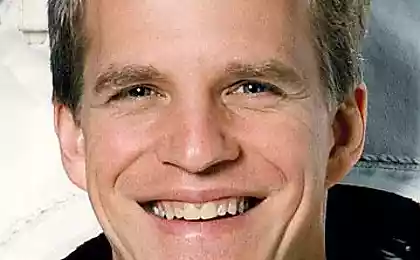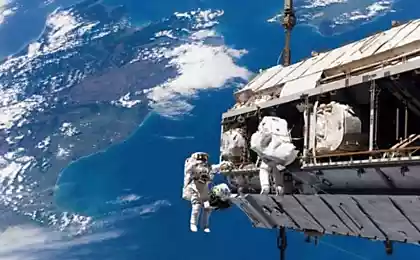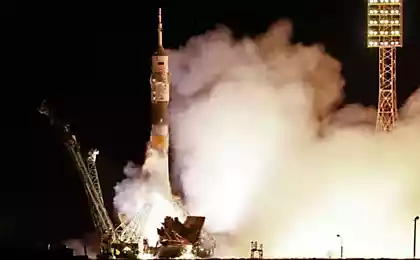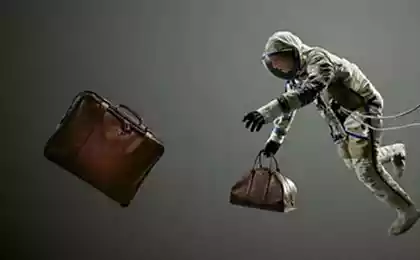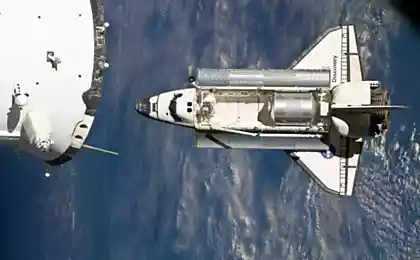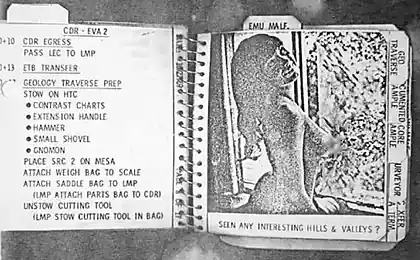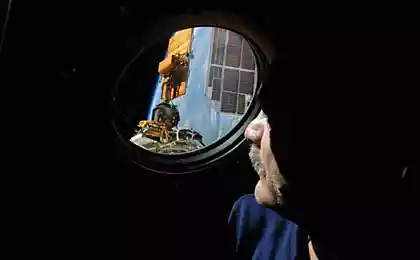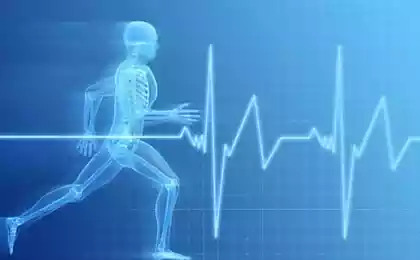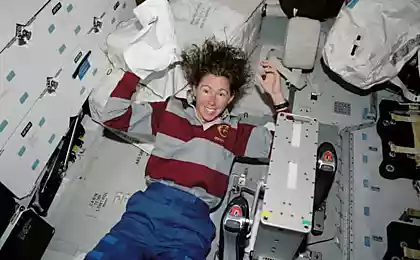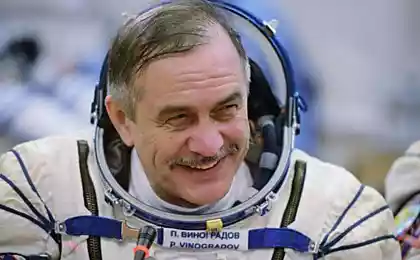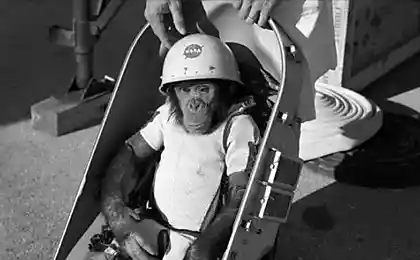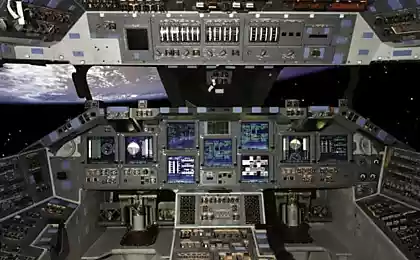535
Astronaut Marsha Ivins —what it's like living in space

"It is impossible to describe the feeling when you leave your own planet. You look down at Earth and realize: you're not there. This is breathtaking. It is unreal. This is the sense: "Toto, we're not in Kansas anymore" [from the book "the Wizard of Oz"]. I spent a total of 55 days in space during five NASA missions, and realized that being outside of the Earth is not just a series of exciting moments. It is a combination of transcendental magic and deep prose. Sometimes noisy, crowded and uncomfortable. But space travel is great, and I did not have to convince".
Wired magazine talked to astronaut Marsha Ivins. Here is her story.
Everyone thinks when you sit on the launch pad riding on 7 million pounds of explosive rocket fuel, you're nervous and worried; but the truth is that during those two hours doing nothing special. Many of the astronauts were just sleeping. You were tied like a sack of potatoes while the system goes through thousands of pre-start checks. Sometimes you need to Wake up and say "Roger" or something else. But the launch itself is quite another. You go to orbit in 8.5 minutes, constantly picking up speed until dispersed to 28 thousand kilometers per hour. That's the trip.

When you are in orbit, weightlessness brings some good points. Without gravity, bodily fluids move toward the head. You feel like the face is tightened, and the stomach becomes flat. You pull an inch or two. There in zero gravity and minuses. Because fluid shifts North, you experience headache. In the first day or two your body is trying to compensate for it and loses about a liter of fluid, you wash away a headache in the toilet. How to feel better? Need to convince your system of view that "the top" where your head is and the bottom where the legs. When you do, you adapt to the microgravity environment. With each flight, this adaptation is faster because the body remembers what being in space. But sometimes it takes a few days before the stomach will calm down and ask: "What are we having for dinner?".
I don't really eat a lot during flights. Yes, on Earth I don't have much appetite, but due to the lack of gravity and shear of the liquid, things take on a different taste. I tried to bring a tasty chocolate, but it turned out to taste like wax — it upset me. In space there is no place for foodies. There can not be anything to cook. Space food is already cooked, frozen and dry Packed in vacuum — you just need to add water and reheat. Well, or it is heated when removing the packaging as military rations. Since there is no refrigerator, the fresh food is actually not. In space you can eat fresh fruit except: apples, oranges, grapefruits, and then in the beginning of the mission.
One of the strangest experiences in space is the simplest action on Earth: a dream. Being in the Shuttle, you strapped a sleeping bag to the wall, ceiling or floor where you want, and sleep. As in the tent. The bag has armholes for the arms, they can be used to fasten the bag. You fasten it with Velcro and put the head on a foam block to keep your neck relaxed. If you can't put hands into the bag, they will drift in front of you. Sometimes I Wake up, look at the hand floating in front of my face and think "Wow, what is this?" don't see that it's yours.
During most of the flight I slept in the airlock in the middle of the Shuttle. There was no one working until we came out into open space, so gateway was my personal bedroom. Among the shortcomings is the coldest part of the Shuttle, there is about 20 degrees. I hid my hands in the bag and wore four layers of clothing; sometimes heated the packs with food and threw in a bag as a hot water bottle. In the last two nights of my final flight, I slept on the flight deck, my bag was attached under the topmost window. The Shuttle position was such that through this window I saw the Earth, so when I woke up, the whole world was in front of me — and in such moments, and for me.
The most amazing thing in my flights was how they relaxed. The astronauts-beginners very worried about the performance of their duties, are constantly watching how the Sun rises, while it rises to 16 times a day in orbit. Flying the Shuttle is always held in a constant bustle of experiments, maintenance, spacewalks, robotic surgery with. It was hard work, stressful and scary — if you screw up, then screw up in front of all the people on the planet. But, at the same time, I found the flights very relaxing. When you travel on Earth, you're constantly with something in contact. You can reach any one you want. But in space, you are isolated. You can write a letter on the Ground, of course, but that has nothing to do with everyday experience: if I paid the bills? Fed the dog? The whole routine almost freezes the atmosphere. I was completely free from the Ground. But all the experiences are returned with the re-entry into the atmosphere. At the time of landing, my brain had already written myself a list of what needs to be done.
I was never sick in space, but never felt good returning home. When you return, your inner ear — which controls balance in the Land, and which is deactivated at the time of the trip is beginning to feel the gravity and becomes incredibly sensitive. Your balance off and you need to learn anew how to walk in terms of gravity. Turn your head and you'll die. Muscles which were not used for several people, again should be simple prophetic: to stand, to walk, to lift something. It takes several days or weeks before you will again stand on your feet on the Ground.
It was hard, exciting, frightening and indescribable. And I wouldn't mind repeating.
Source: hi-news.ru
Tincture of mistletoe — useful properties, recipes and application
The water Sassi recipe from a registered dietitian with a world name, drink and lose weight

